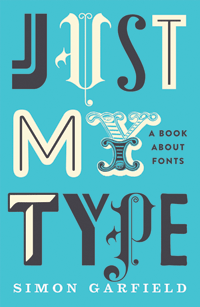- HOME
- INTRO TO THE FORUM
- USE AND MISUSE
- BADLY WRITTEN, BADLY SPOKEN
- GETTING
TO KNOW ENGLISH - PREPARING FOR ENGLISH PROFICIENCY TESTS
- GOING DEEPER INTO ENGLISH
- YOU ASKED ME THIS QUESTION
- EDUCATION AND TEACHING FORUM
- ADVICE AND DISSENT
- MY MEDIA ENGLISH WATCH
- STUDENTS' SOUNDING BOARD
- LANGUAGE HUMOR AT ITS FINEST
- THE LOUNGE
- NOTABLE WORKS BY OUR VERY OWN
- ESSAYS BY JOSE CARILLO
- Long Noun Forms Make Sentences Exasperatingly Difficult To Grasp
- Good Conversationalists Phrase Their Tag Questions With Finesse
- The Pronoun “None” Can Mean Either “Not One” Or “Not Any”
- A Rather Curious State Of Affairs In The Grammar Of “Do”-Questions
- Why I Consistently Use The Serial Comma
- Misuse Of “Lie” And “Lay” Punctures Many Writers’ Command Of English
- ABOUT JOSE CARILLO
- READINGS ABOUT LANGUAGE
- TIME OUT FROM ENGLISH GRAMMAR
- NEWS AND COMMENTARY
- BOOKSHOP
- ARCHIVES
Click here to recommend us!
READINGS IN LANGUAGE
This section features links to interesting, instructive, or thought-provoking readings about the English language and related disciplines. The selections could be anywhere from light and humorous to serious and scholarly, and they range widely from the reading, writing, listening, and speaking disciplines to the teaching and learning of English.
Your pronouns and function words tell a lot about you, says book
Who would have known that a speaker’s or writer’s frequency of use of the style or function words—the pronouns, articles, prepositions, auxiliary verbs, and conjunctions—reveals a great deal about his or her feelings, self-concept, and social intelligence? Not so many perhaps, and certainly not until James W. Pennebaker, an American social psychologist and language expert, used computational linguistics to establish that contrary to prevailing belief, our use of the content words—nouns, action verbs, adjectives and adverbs—isn’t as strong an indicator of our social identity and individual psyche as our use of the less regarded style or function words, particularly pronouns and prepositions.

In his newly released book The Secret Life of Pronouns: What Our Words Say About Us (Bloomsbury Press, 352 pages), Pennebaker reports in penetrating but lively and entertaining detail how a person’s pronoun and auxiliary verb usage strongly correlates with gender, age, personality, and social skills. One of Pennebaker’s findings, for instance, is that women, younger people, and people from lower social classes use pronouns and auxiliary verbs more frequently—words that he says are telltale but unconscious signals of their lower status and greater social orientation. His analytic techniques, he says, also can predict that a high school student who uses too many verbs in her college admissions essay is likely to make lower grades in college, and reveal that it’s often a bad sign when a politician predominantly uses “we” instead of “I” when referring to himself or herself.
Says linguist and language columnist Ben Zimmer in a review of Pennebaker’s The Secret Life of Pronouns in the August 26, 2011 issue of The New York Times: “The under-the-radar sneakiness of function words actually makes them uniquely suited to Pennebaker’s wide-ranging research goals, which focus on uncovering traces of our social identity and individual psyche in everyday language use. It also helps that these little words make up a vast majority of the most common words in the language, which means that Pennebaker and his colleagues can collect them in large enough numbers to support statistical analysis of a whole variety of texts, from Twitter posts to despairing poetry.”
Read an abstract of James W. Pennebaker’s The Secret Life of Pronouns now!
Read Ben Zimmer’s “The Power of Pronouns” in The New York Times now!
Read Juliet Lapidos’s “Reading Between the Lines” in Slate now!
ABOUT THE AUTHOR:
James W. Pennebaker is an American social psychologist who does research focusing on the relationship between natural language use, health, and social behavior. He is the Centennial Liberal Arts Professor and Chair of the Department of Psychology at the University of Texas at Austin and a member of the Academy of Distinguished Teachers. He is the author of Writing to Heal and Opening Up: The Healing Power of Expressing Emotions, which has been translated into a dozen languages.
OTHER INTERESTING READINGS:
In “Font Pain and Poetry: So Much Depends on a Curve,” a review of Simon Garfield’s Just My Type: A Book About Fonts (Gotham Books, 356 pages) in the August 21, 2011 issue of The New York Times, Janet Maslin describes the new release as “a smart, funny, accessible book that does for typography what Lynne Truss’s best-selling Eats, Shoots & Leaves did for punctuation: made it noticeable for people who had no idea they were interested in such things.” Maslin says: “Just My Type covers phenomena including how the fonts on road signs are tested for legibility and what the fonts used by various political campaigns subliminally communicate about candidates… And if it does nothing else Just My Type will make it impossible for you to look at logos, road signs, airports, magazines and advertisements indifferently any longer.”

Read Janet Maslin’s “Font Pain and Poetry” in The New York Times now!
In “What We Do to Books,” an article that came out in the August 26, 2011 issue of The New York Times, writer and book reviewer Geoff Dyer writes about the effect that readers have on books rather than the effect that reading books have on us. “These days,” Dyer says, “unless I find myself in very unusual circumstances, I’m reluctant to read a book that shows any sign of prior occupancy. Mainly but not exclusively cosmetic, this aversion has proceeded in tandem with an increasing unwillingness to take other people’s readings — their opinions of what they have read — at face value.”
Read Geoff Dyer’s “What We Do to Books” in The New York Times now!
Click to read comments or post a comment
View the complete list of postings in this section
(requires registration to post)







